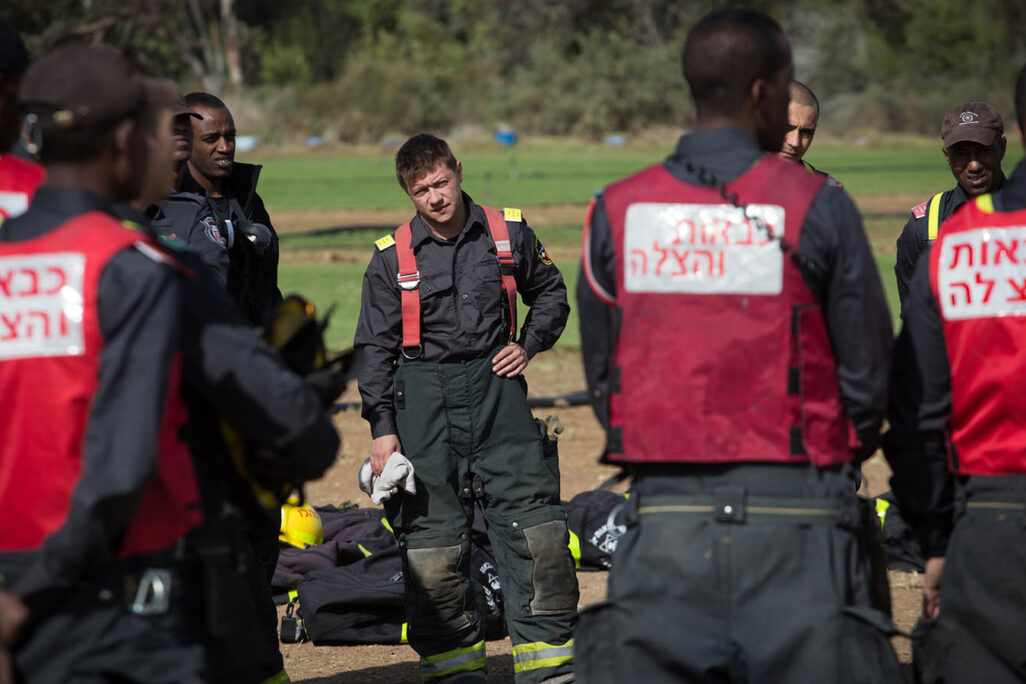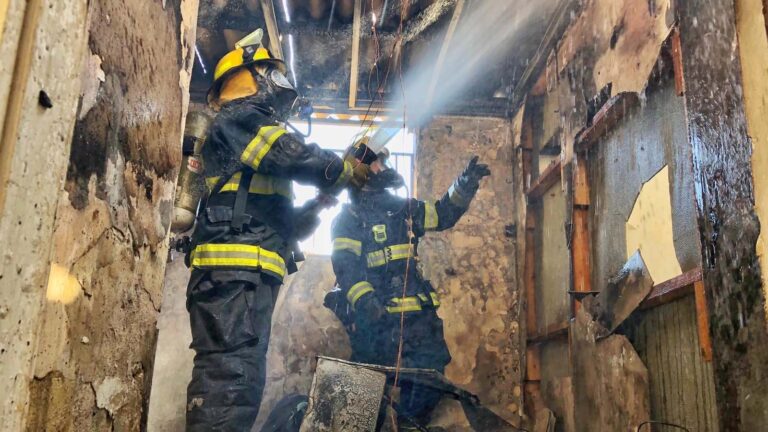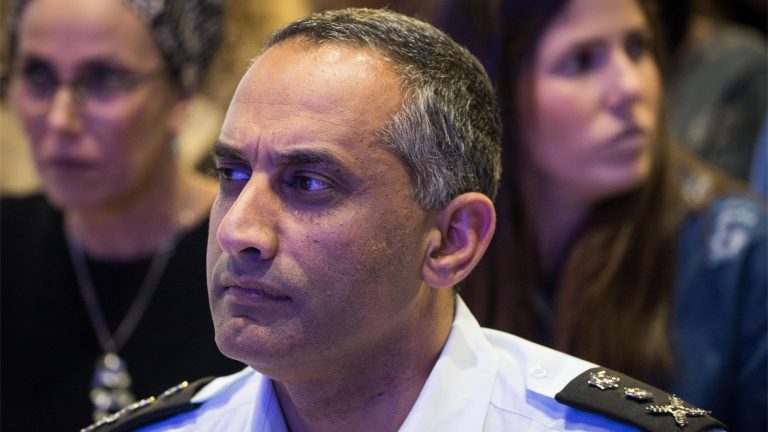
The Ministry of Public Security, which oversees Israel’s police, prisons, and fire services, is promoting legislation to limit firefighters’ ability to strike. Davar gained access to internal correspondence between the Ministry of Public Security, which is led by Labor Minister Omer Barlev, the Fire Authority, the Ministry of Justice, and the Office of the State Attorney with the subject line “Urgent task – limiting the right to strike in the Fire Authority.”
This move follows five years of attempts by Fire Commissioner Deddi Simchi to limit the ability of firefighters to strike and systemic violations of the agreements that the firefighters had achieved through collective bargaining.
Within the correspondence, Rachel Shilansky, who directs the Labor Law Department within the Office of the State Attorney, advised Fire Authority management on how to proceed. When asked her opinion on the restriction of firefighters’ right to strike, Shilansky wrote that the state is obligated to have talks with the firefighters’ union and the Histadrut, which represents the firefighters’ union. She said that this obligation is amplified by the Fire Authority serving as a regulator as well as an employer.

But later on in the correspondence, Shilansky suggested tactics to weaken the workers’ position during the negotiations.
“As for the timing of the invitation to speak with the workers, I think it is better to publish the memorandum first and only then contact the workers. It will be harder for them to deal with a fait accompli,” she wrote.
Shilansky seemed aware that her proposed plan of action to limit the firefighters’ right to strike could lead to a legal response. “It is clear to me,” she wrote, “that the publication of the memorandum will lead to a stubborn legal battle.”
Shilansky expressed hostility towards organized labor within the fire department and declared her opposition to the rights that, she assumed, the labor court would uphold: “There is no doubt that if the court were to be asked the question of the obligation to consult with workers regarding the restriction of the right to organize and its implications for their work, [the court’s] decision would be unequivocal and explicit.
“My position is also that it is better to be extra careful during this important process of changing the law, and it is important to neutralize in advance any obstacle that the workers try to put in our way, such as petitioning to the court to prevent the change until a procedure is negotiated with them, a petition that will undoubtedly have the support of the court.”

The correspondence was attached as an appendix to the Histadrut’s petition against the unilateral move to turn the Fire Authority into an auxiliary unit in the Ministry of Public Security, which was halted this week by the Bat Yam Regional Labor Court. The attempt to restructure the Fire Authority, presumably in order to lessen their negotiating power, follows five years of clashes between management and the union.
The restructuring would move disciplinary power from the Civil Service Commission to the Fire Authority itself. In recent years, the Fire Authority has initiated several disciplinary proceedings against union leaders, most of which were eventually dismissed by the Civil Service Commission. The Histadrut has claimed that these disciplinary proceedings were initiated with the aim of weakening the union.
The correspondence reveals the urgency with which ministers and other officials tried to act in order to weaken the union. At the beginning of the correspondence, which took place in mid-October, Lina Salem, a lawyer at the office of the Attorney General in the Ministry of Justice, wrote that the ministry had received the draft bill that the Fire Authority was seeking to promote, and that the ministry hoped to pass within ten days.
“The issue is very urgent for the Fire Authority and the Ministry of Public Security,” she wrote.

Following the correspondence, Oded Brook, the legal advisor of the Fire Authority, requested references with respect to the requiring consultation with workers before enacting such a change. Brook's deputy, Keren Gal-On, also raised the question of whether it would be possible to delay the required consultation with the union and the Histadrut, to be held only after the distribution of the memorandum, as part of the time frame for examining public comments.
Shilansky also commented, reiterating her hostility towards the union. “I agree that there should be dialogue with the workers, although of course their consent is not required. It is clear that there is also no possibility of any agreement on their part, but on the contrary, a stubborn struggle is expected from them,” she wrote.
She went on to express her personal agenda against the unionized workers: “To me, there is no choice but to amend the law, it is impossible to continue to conduct operations this way in a critical emergency organization,” she wrote. “The dozens of disputes and measures (although we have not reached a real strike, thank G-d) that the workers have taken in recent years have often paralyzed the Authority and only by a miracles there have been no serious disasters and loss of life.”
Recent disputes between workers and the Fire Authority have revolved around unilateral directives from the employer such as the requirement to remain on shift at fire stations during rest periods between actively firefighting and training activities.
The management of the Fire Authority has systematically harmed the firefighters’ union and its leadership, by initiating multiple disciplinary proceedings against union leaders. According to testimonies from senior firefighters and Histadrut members, Fire Commissioner Simchi has been outspoken in his opposition to the union.

“I will show everyone that it is not worthwhile to be in the union,” he said, according to one of the testimonies, “because then you are subject to criticism and complaints.”
Simchi is expected to end his tenure next month, and some expect that his attempt to turn the Fire Authority into an auxiliary unit in the Ministry of Public Security – in a hurried legislative process – is the legacy he wants to leave behind.
The Ministry of Justice responded with the following statement:
“These are partial quotes from internal correspondence concerning routine legal advice that took place between the Ministry of Public Security and the Fire Authority and the various bodies in the Ministry of Justice, while examining the possibility of promoting a memorandum of law.
“In this context, the question of the scope and timing of the necessary cooperation and dialogue with the union also arose, where the government is interested in promoting legislation that may affect labor relations, and different opinions have been expressed in this regard, referring to previous rulings.
“Needless to say, we apologize for the serious leak of this internal correspondence, in a tendentious and decontextualized manner, with the aim of undermining the factual and direct discourse that takes place among all the parties involved in this important and sensitive issue.”
Neither the Ministry of Public Security, the State Attorney’s Office, nor the Fire Authority responded.
This article was translated from Hebrew by Leah Schwartz.






